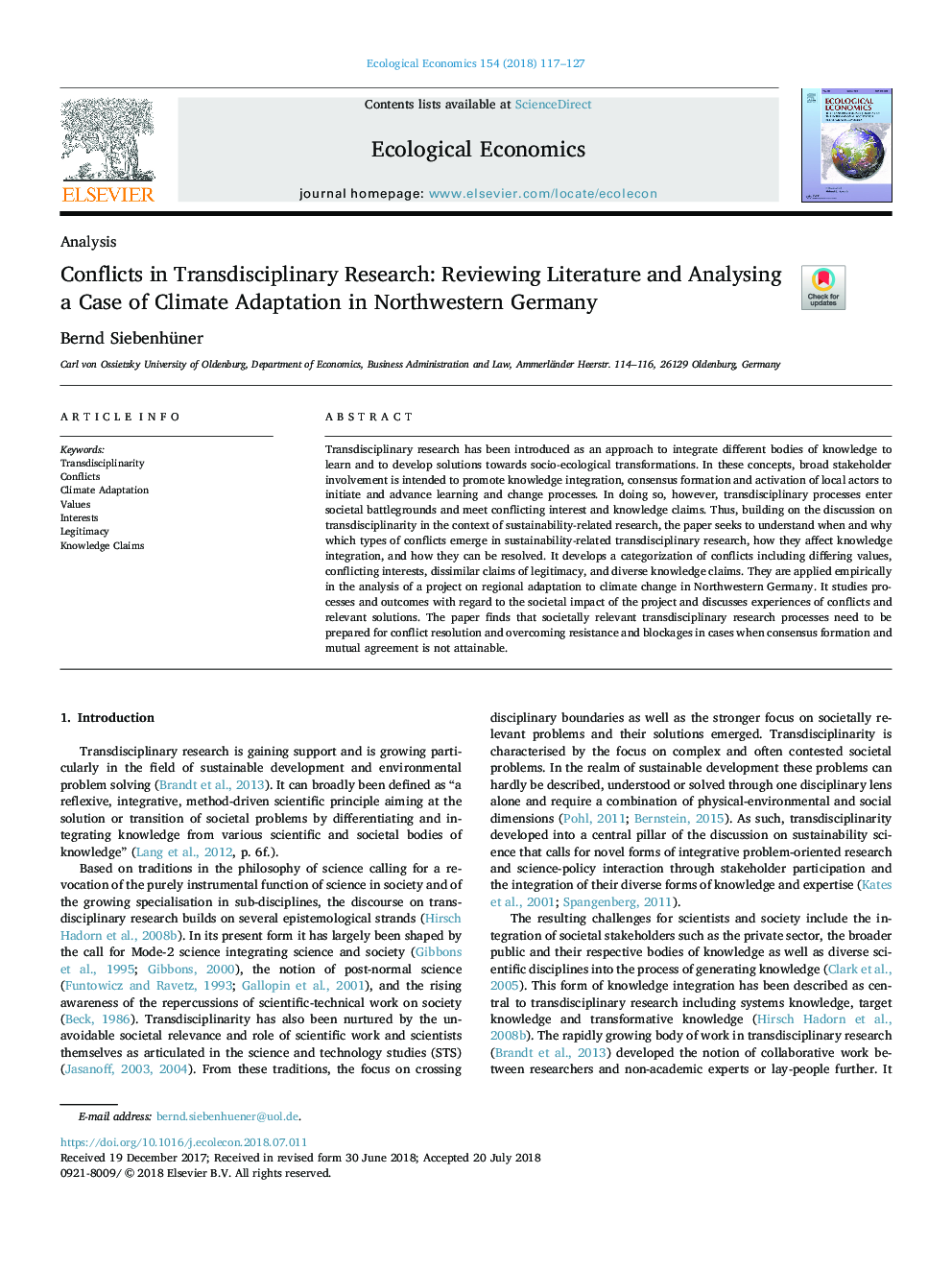| Article ID | Journal | Published Year | Pages | File Type |
|---|---|---|---|---|
| 7343668 | Ecological Economics | 2018 | 11 Pages |
Abstract
Transdisciplinary research has been introduced as an approach to integrate different bodies of knowledge to learn and to develop solutions towards socio-ecological transformations. In these concepts, broad stakeholder involvement is intended to promote knowledge integration, consensus formation and activation of local actors to initiate and advance learning and change processes. In doing so, however, transdisciplinary processes enter societal battlegrounds and meet conflicting interest and knowledge claims. Thus, building on the discussion on transdisciplinarity in the context of sustainability-related research, the paper seeks to understand when and why which types of conflicts emerge in sustainability-related transdisciplinary research, how they affect knowledge integration, and how they can be resolved. It develops a categorization of conflicts including differing values, conflicting interests, dissimilar claims of legitimacy, and diverse knowledge claims. They are applied empirically in the analysis of a project on regional adaptation to climate change in Northwestern Germany. It studies processes and outcomes with regard to the societal impact of the project and discusses experiences of conflicts and relevant solutions. The paper finds that societally relevant transdisciplinary research processes need to be prepared for conflict resolution and overcoming resistance and blockages in cases when consensus formation and mutual agreement is not attainable.
Related Topics
Life Sciences
Agricultural and Biological Sciences
Ecology, Evolution, Behavior and Systematics
Authors
Bernd Siebenhüner,
